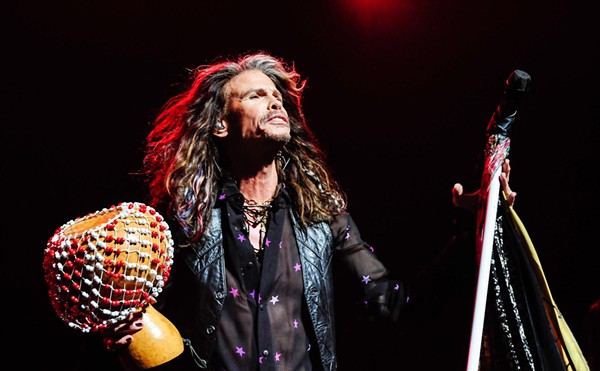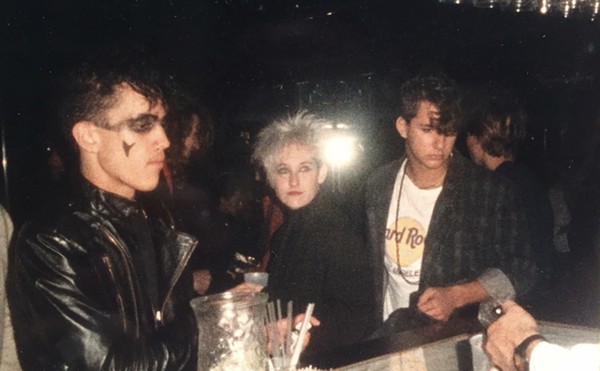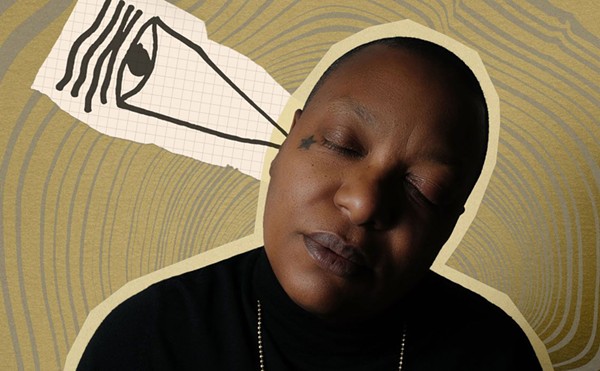Over the last couple of years, Fall Out Boy has enjoyed the sort of press usually reserved for only the biggest names in music. Oh wait, that’s them. In fact, you know you’re big when the CEO of your record label — in this case, Jay-Z — opens up your latest album by dismissing your critics with an album dedication to “all those who said we couldn’t make it.” Here’s how Fall Out Boy themselves respond on Infinity On High:
Step 1: They stay irreverent by keeping their trademark witty song titles and even wittier lyrics such as, “You’re a canary/I’m a coal mine” from “I’ve Got All this Ringing in my Ears and None on My Fingers.”
Step 2: They don’t stay anything else. Everything else they shake up, if only by a few degrees. The machine-gun drums that open the first track “Thriller” say “Pay attention,” but it’s bringing in Babyface to co-produce that’s the biggest curveball. First single “This Ain’t a Scene, It’s an Arms Race” stomps all over an R&B club track that’ll get heads swinging. The inclusion of the chorus from Leonard Cohen’s “Hallelujah,” with lead singer Patrick Stump chanting “Hum-ho hallelujah” over it, is sacrilegious and genius all at the same time.
Step 3: They beat your chest. Nothing in the music “industry” — songs, song titles, other musicians, critics — are safe. Like on “Thriller”: “By fall we were a cover story ... make us poster boys for your scene/ but we are not making an acceptance speech.” “Fame < Infamy” extols the danger of financial success over personal happiness. But it’s “This Ain’t a Scene, It’s an Arms Race” that offers up the big F-you, a battle cry against all the copycats who try to keep up with them in an “arms” race the also-rans can never win. It would sound cocky, if not for the fact that no one expected Fall Out Boy to get this far.
— Cole Haddon
Lost ‘Weekend’
Back in 1989, when Lenny Kravitz released his debut album Let Love Rule, so many critics carped that Kravitz had pinched his sound from John Lennon’s Plastic Ono Band, Kravitz decided to check out Lennon’s album for himself. He’d never heard it before, but he ended up liking it as much as critics had previously assumed he already did.
Similarly, Bloc Party tends to get praised/panned for being profoundly influenced by the angular, post-punk dance-rock of bands like Gang of Four, when its members claim ignorance on the subject. By this point, rock cycles have repeated themselves enough times that it’s quite plausible, through hearing the imitator of the pastiche of the imitator, your greatest influences can be artists you’ve never actually listened to.
At the very least, Bloc Party’s second album, A Weekend in the City, should invite critics to change their reference points, because the spare propulsion of early singles such as “Banquet” has largely given way to a more languid dreaminess and a more spacious sense of texture.
Bloc Party leader Kele Okereke, a Brit born to Nigerian parents, views his music as a political tool (he recently slammed Jack White for eschewing political commentary) and his lyrics occasionally suffer from excessive earnestness. The atmospheric “Uniform” wears its pop-culture cynicism way too blatantly on its sleeve: “The TV taught me how to sulk and love nothing/ and how to grow my hair long.” The song kicks into overdrive in the middle, and makes its case better with its guitar attack than its anti-apathy, anti-conformity sermon.
Okereke knows how to maneuver his way around a metaphor, however, and he does so most effectively with “On,” which equates cocaine with a truth serum. On this song, however, he’s undone by the icy detachment of the perfunctory music. His words aim for emotional connection, but the soundscape feels distant.
Despite winning moments such as “Where Is Home,” a meditation on British race relations, and “Kreuzberg,” an elliptical recollection of Berlin, too much of the album suffers from that arms-length chilliness. A leap forward in studio sophistication, A Weekend in the City sacrifices much of the punk energy that made this band appealing in the first place.
— Gilbert Garcia

















